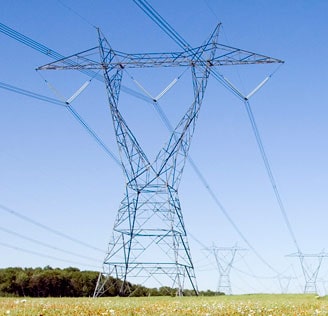Alberta’s weighted average Power Pool Price for September is currently $297.21/MWh, an increase of $60.82/MWh or 25.7% relative to last week’s price of $236.39/MWh. September has experienced some of the highest daily settles we’ve seen in the province, with prices of $534.25/MWh, $531.86/MWh and $763.72/MWh on the 12th, 13th and 14th, respectively. Pricing on the 14th was the highest daily settle in the past two decades. This week’s volatility can be attributed to extremely low levels of renewable generation, a Path 2 Intertie outage, as well as nearly 4,000MW of generator outages in the province, which had an extreme impact on the supply cushion.
The weighted average Hourly Ontario Energy Price (HOEP) is settling at 8.1¢/kWh so far for the month of September, representing a 0.5¢/kWh or 6.2% decrease over last week’s settle. Natural gas-burning supply increased by 13.7% (2,167MW) over the course of this past week, while baseload generation, such as nuclear and hydro, both lowered their respective output to an average of 9,356MW (-3.1%) and 3,757MW (-2.2%). Wind and biofuel increased week-over-week output (+4.9%; 772MW, +13.4%; 51MW, respectively), whereas solar decreased (-4.5%, -98MW). With the first Global Adjustment estimated at 4.0¢/kWh, September’s total market price is settling at 12.1¢/kWh as of today.
As mentioned a few WERs ago, the Inflation Reduction Act features significant credits for electric vehicles. One of the qualifying criteria is that 80% of each battery needs to be manufactured/sourced in North America. So, as of right now very few vehicles, if any, would qualify. So, let’s look inside the frunk of the EV industry, particularly at lithium, one of the primary critical minerals required to manufacture batteries (others include nickel, manganese and cobalt). Mining executives say that China owns between 70-80% of the entire supply chain for EVs and lithium-ion batteries. According to the US Geological Survey (via the World Economic Forum), global lithium production totaled 100,000 tons (90.7 million kg) while worldwide reserves stand at 22 million tons (20 billion kg). One EV lithium-ion battery pack contains about 8 kg of lithium, so last year enough lithium was mined to produce about 11.4 million EV batteries. Worldwide lithium supplies are tight and countries with undeveloped reserves are going through the necessary regulatory processes to bring the ore to market – a process which, over the last decade, has averaged 16.5 years! At this rate the WEF determined there would be a shortage by 2025 and beyond that, there just isn’t enough lithium in the world to solely rely on to pave the path to net zero. Of course, a variety of mineral combinations can be used to produce batteries with unique benefits in terms of range, weight and cost. The EV battery industry is young and surely technology will be developed to lessen the resource-intense requirements of the mining process (i.e. energy, ethical labour, water, etc.). This week Tesla announced a positive move towards the more ethical sourcing and refining of lithium. Tesla is considering building a US$365 million lithium refinery in Robstown, Texas near Corpus Christi on the Gulf Coast where it would receive the lithium ore by ship. Tesla also signed sourcing deals with lithium producers in Australia, slated to begin production at around the same time Tesla’s refinery would be in service.
– Mark Ljuckanov, Energy Advisor / Ryan Cosgrove, Energy Data Analyst / Grace Wilton, Senior Energy Advisor








Add comment